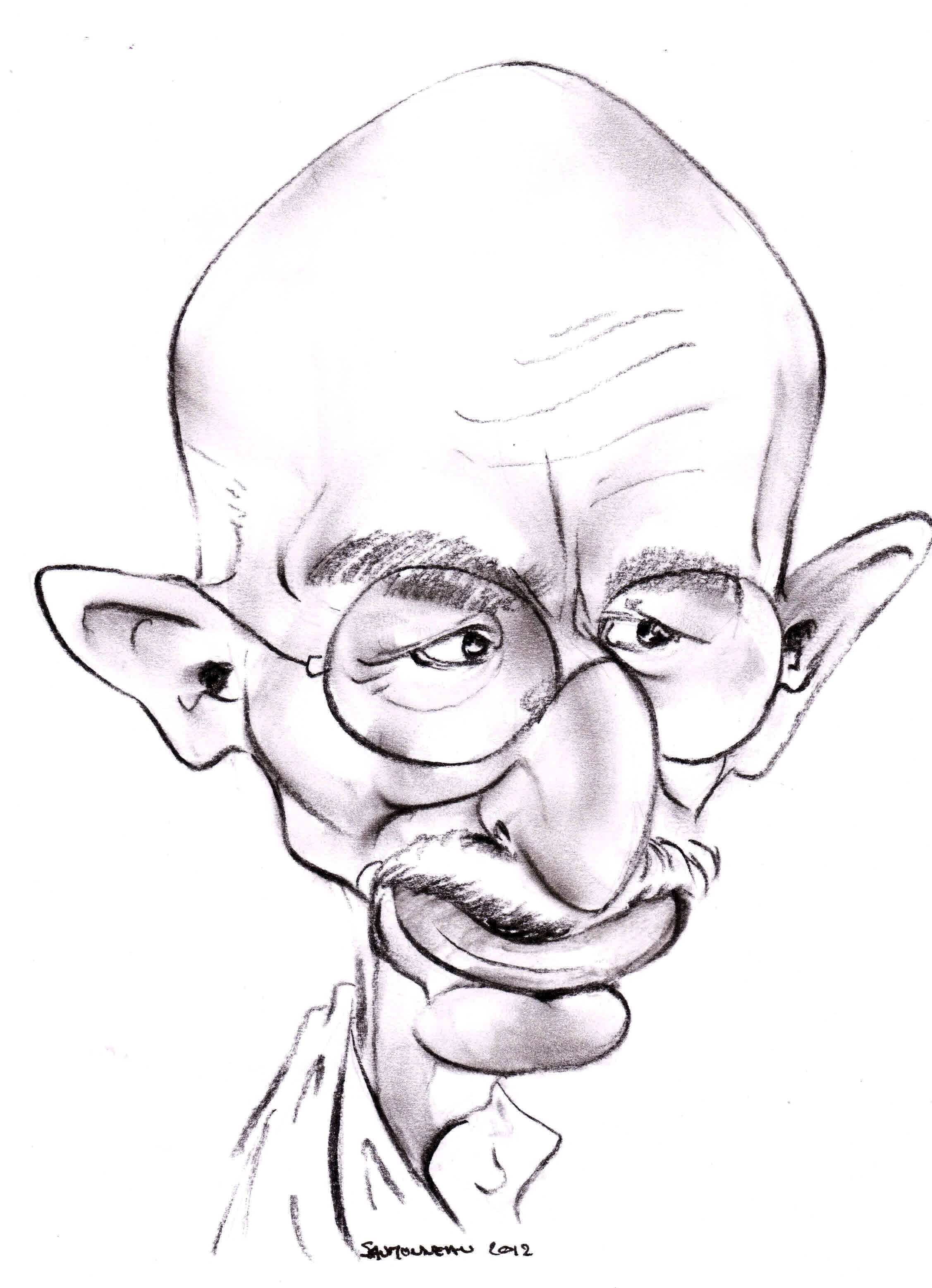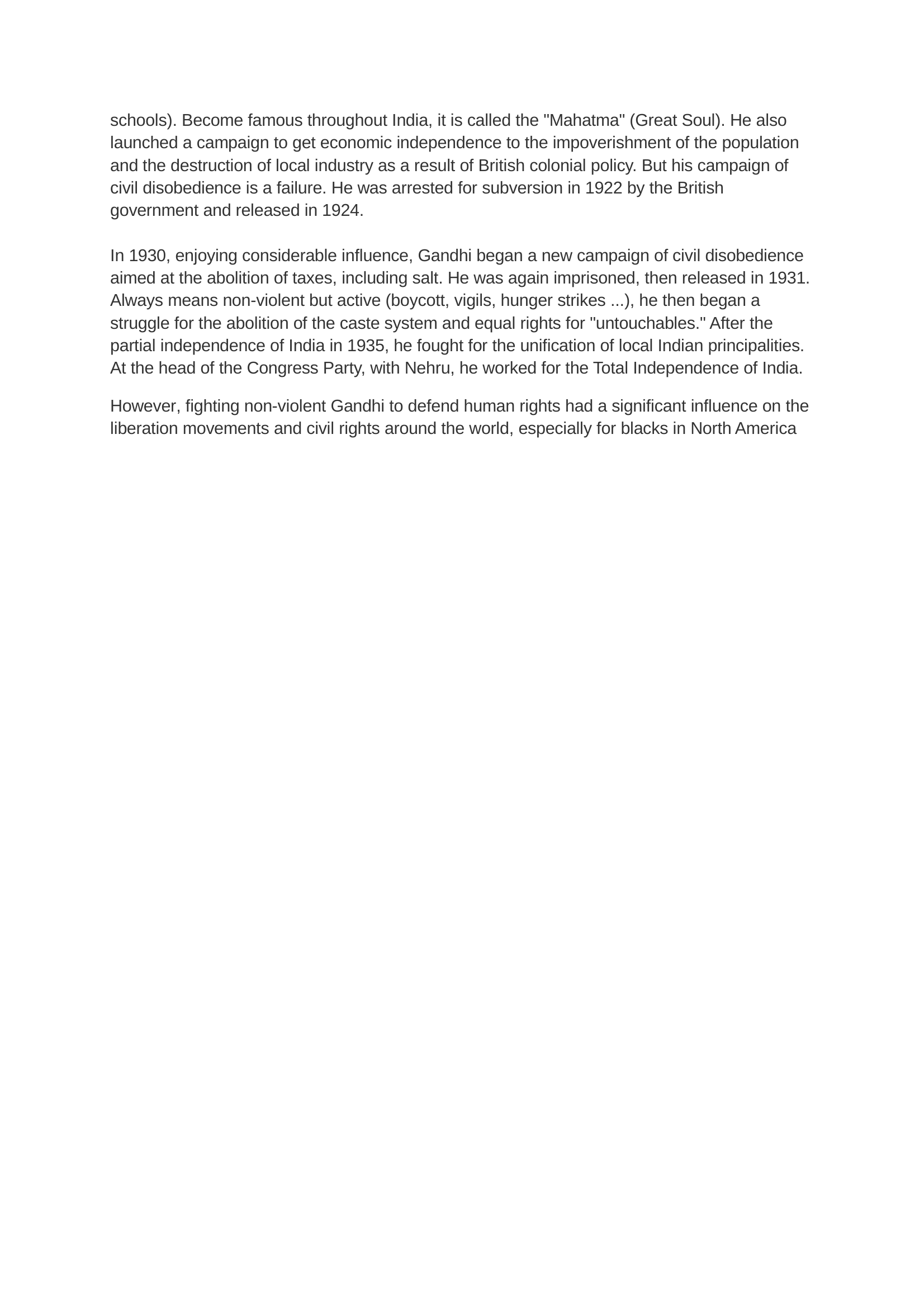La vie de gandhi
Publié le 17/11/2012

Extrait du document


«
schools).
Become famous throughout India, it is called the "Mahatma" (Great Soul).
He also
launched a campaign to get economic independence to the impoverishment of the population
and the destruction of local industry as a result of British colonial policy.
But his campaign of
civil disobedience is a failure.
He was arrested for subversion in 1922 by the British
government and released in 1924.
In 1930, enjoying considerable influence, Gandhi began a new campaign of civil disobedience
aimed at the abolition of taxes, including salt.
He was again imprisoned, then released in 1931.
Always means non-violent but active (boycott, vigils, hunger strikes ...), he then began a
struggle for the abolition of the caste system and equal rights for "untouchables." After the
partial independence of India in 1935, he fought for the unification of local Indian principalities.
At the head of the Congress Party, with Nehru, he worked for the Total Independence of India.
However , fighting non-violent Gandhi to defend human rights had a significant influence on the
liberation movements and civil rights around the world , especially for blacks in North America.
»
↓↓↓ APERÇU DU DOCUMENT ↓↓↓
Liens utiles
- Gandhi Vie et mort du Mahatma (Travaux Personnels Encadrés – HISTOIRE & CIVILISATION)
- Gandhi : Vie et mort du Mahatma
- Article de presse: Indira Gandhi : une vie entière en politique
- THÈME 1 : La Terre, la vie et l’organisation du vivant Thème 1A : Transmission, variation et expression du patrimoine génétique Chapitre 1 : Les divisions cellulaires, transmission du programme génétique chez les eucaryotes
- « L’art de la vie se rapproche de l’art de la lutte : il faut se tenir prêt sans broncher à répondre aux coups qui fondent sur nous, même s’ils sont imprévus » Marc Aurèle


